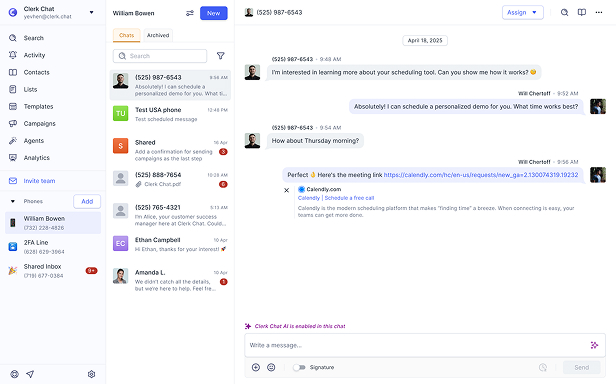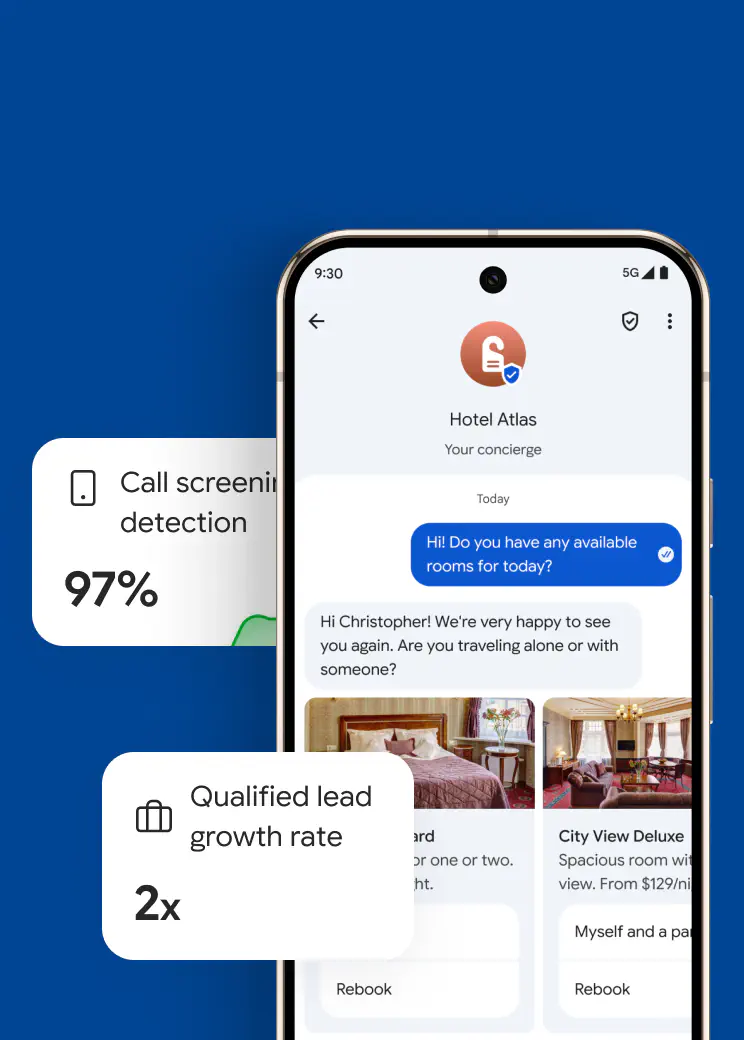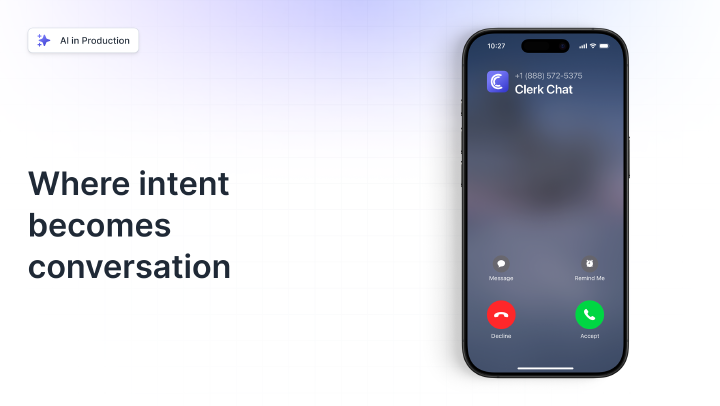How Accounting Firms Can Share Login Verification Codes
By Team Clerk Chat
- Published: March 11, 2022
Are you an account trying to figure out how to better share two factor authentication (2FA/MFA) codes? There’s an easy solution: Clerk MFA.
Accounting firms often rely on specific third-party software to do their jobs, such as QuickBooks or Xero. These online platforms provide an incredibly valuable product, partly because of the ease of sharing the accounting information between clients and the accounting firm. But with the rise of cybersecurity threats, QuickBooks, Xero, and the like have started requiring multi-factor authentication.
What is MFA/2FA/OTP?
Multi-factor authentication (MFA), 2-factor authentication (2FA) and one-time passwords (OTP) are all types of login security precautions. Instead of a simple username and password combination, the website will require a second verification after entering the username and password. Typically, this verification is a one-time login code sent to a phone number or email address. The code will expire after a short amount of time, after which a new code is required.
Furthermore, most MFA protocols require non-VoIP phone numbers. Put simply, a non-VoIP phone number is a permanent phone number tied to a location, not an ‘Internet phone number’.
The Need for Shared Logins
MFA is great for protecting confidential information, but what about when more than one person needs access to an account? At accounting firms, this need occurs frequently. From multiple accountants at the firm to multiple employees and executives on the client side, each account may have numerous people who need access. In these cases, shared logins become a big pain point.
If accounting firms rely on a manual shared MFA process, it looks a little something like this: the project manager for an account ties the login to his or her personal cell phone (since Quickbooks, Xero, etc require a non-VoIP phone number). When someone else needs access, that person first reaches out to the project manager confirming ability to receive and send the code at that time. After confirming, the other person tries to log in, then asks the project manager to send the code before entering it in and proceeding to finish the login process.
Logging in to an account – a process which should take 30 seconds – instead can easily take 5-10 minutes between confirming availability and passing codes back and forth. And that’s assuming the project manager is actually available! Between meetings and appointments, especially with the new remote work/flexible hours working arrangements that are so common, the project manager may not even be available when needed.
There has to be a better way for accounting firms to share MFA codes.
Accounting firms can automatically share MFA codes with Clerk
Clerk has a solution for accounting firms looking to improve the shared MFA code process. With Clerk, accounting firms can select a non-VoIP phone number for the login that connects to a shared platform, such as Slack or Microsoft Teams. Everyone with access to that platform can then easily receive the MFA codes directly, instead of manually routing the codes through a project manager. Clerk MFA consolidates and automates MFA for shared accounts.
What is Clerk?
Clerk is a business messaging platform that makes it easy for companies to take advantage of texting from a business communication platform. Companies can reach employees, clients, and customers on their phones, while managing the communication from their preferred platform.
We started in Slack, connecting phone numbers to a Slack workspace, so companies, from accounting firms to doctors offices to startups, could bring the ease and functionality of Slack to their business text messaging. When the solution took off, we knew there was a big need for consolidating forms of communication and increasing the ease of business texting. We expanded into solutions for Microsoft Teams, Salesforce, and more.
Through this process, we realized that shared MFA codes were a major pain point for many businesses. Clerk’s basic functionality could easily be applied to this use case. We could already connect non-VoIP phone numbers – even landlines - to Slack and Microsoft Teams. All we had to do was apply it to shared MFA codes.
How accounting firms can share MFA codes with Clerk
Using Clerk to share MFA codes in QuickBooks, Xero, or other platforms is easy. First, you simply sign up for a Clerk non-VoIP phone number in the Slack or Microsoft Teams app store. It will connect automatically to your workspace and create a Clerk channel. Next, invite anyone who needs access to the codes to that channel. Now, simply set up your accounting software login to use the Clerk phone number. Now when someone logs in, the verification code will be routed directly to the Clerk channel in Slack or Microsoft Teams to use.

It really is that simple. In minutes, your accounting firm and client teams can easily be automatically sharing MFA codes, increasing efficiency, and reducing frustration.
Clerk MFA is the best solution for accounting firms
Accountants need efficiency, especially during tax season. Manually sharing MFA codes is frustrating and slow. Automatically sharing these codes is incredibly beneficial. But it’s important for the MFA solution to also be easy, secure, and affordable. Clerk MFA is all of these.
As we’ve already explained, Clerk MFA is easy to set up and use for companies already using Slack or Microsoft Teams. It integrates seamlessly into these platforms. We’re not adding another platform or program for your team to learn and use. Plus, you can even activate your existing phone number.
The entire point of MFA and 2FA is to increase security. Your shared MFA solution shouldn’t negate that. We give you your own, permanent non-VoIP phone number to use for long-term SMS verification.
Lastly, Clerk is affordable. We charge a flat, monthly fee, no matter how many users you have or how often it is used.
Are your accountants ready for shared MFA?
Make your life and your team’s life easier. Clerk MFA is a simple solution that can benefit your accounting firm in just minutes. Learn more about MFA for Shared Accounts.
In this article:
Ready to use your business number for text messaging?
Thousands of businesses are already experiencing the power of conversational messaging through SMS. Join us. Free trial and paid tiers available.
Get Started#Subscribe
Get product updates in your inbox
Tutorials, features, and Clerk Chat news delivered straight to you.



